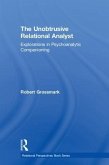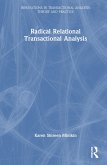In relationships between the self and others, dominance has been defined in different ways. Most definitions deal with vague perceptions of influence in terms of passively accepting another¿s statements. We argue that a compelling and specific measure of dominance lies in the asymmetry of predictability. The asymmetry of predictability asserts that when person Z¿s future behavior is more predictable from person Y¿s past behavior, but not the inverse, then person Y is regarded as more dominant. This is a precise, operable definition of influence that is based on behavioral observation and coding. We created a scale designed to measure facets of asymmetry of predictability and contrast it with crude measures that are discussed in the literature as relationships develop. Dominance is measured in terms of self and other influence. A series of research questions and a hypothesis provide preliminary evidence for the feasibility of measuring dominance as asymmetry of predictability across stages of relationships. Results reveal that more dominance asymmetry is exhibited as relationships are in decay stages.
Bitte wählen Sie Ihr Anliegen aus.
Rechnungen
Retourenschein anfordern
Bestellstatus
Storno








